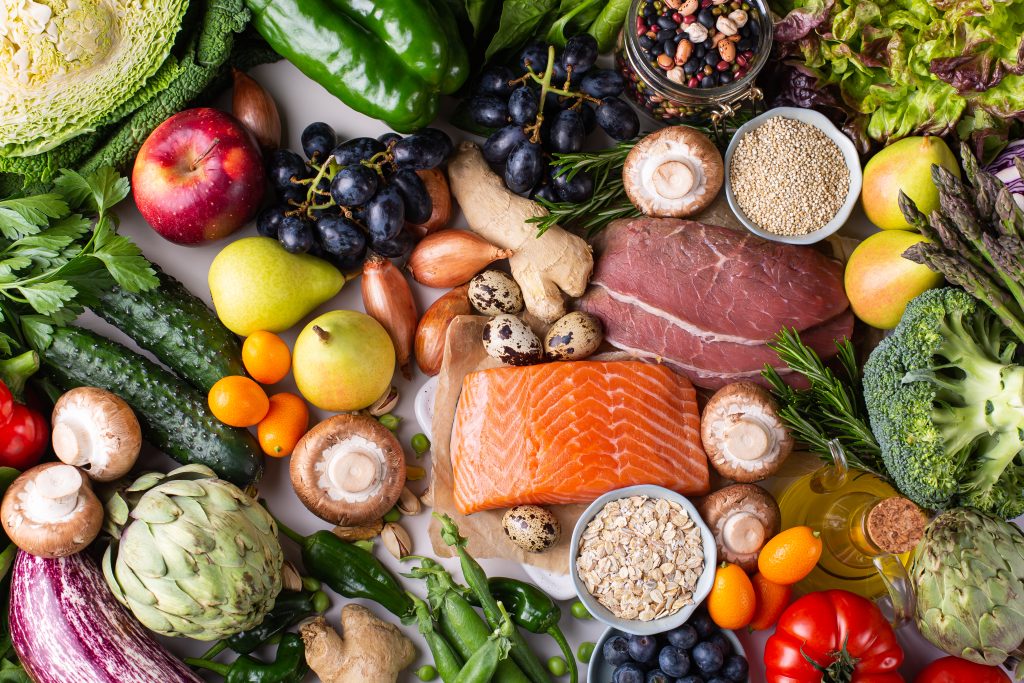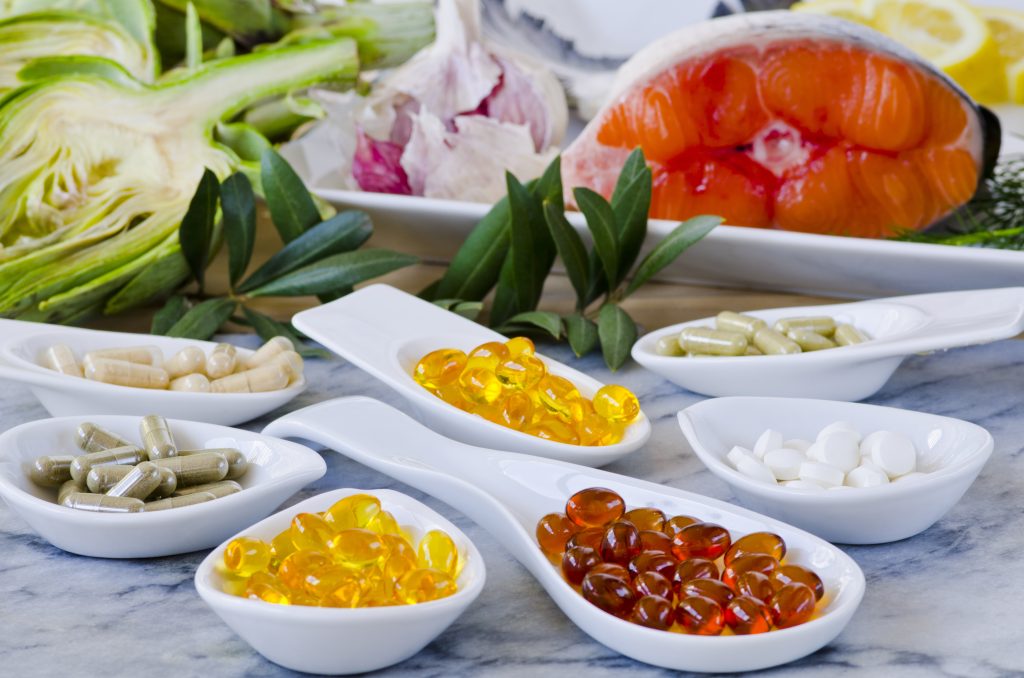What You Should Know About Foods That Boost Your Energy
 Running a business and working in the adult industry takes energy! Sometimes it can be difficult to have enough reserves to complete your tasks. Poor diet, insufficient sleep, inactivity, and conditions like hypothyroidism can hold you back.
Running a business and working in the adult industry takes energy! Sometimes it can be difficult to have enough reserves to complete your tasks. Poor diet, insufficient sleep, inactivity, and conditions like hypothyroidism can hold you back.
That’s why it’s important that you fuel your body with nutritious foods and enough water. Your body will operate more efficiently if you have a diet that gives you the required energy you need.
What is the relationship between energy and food?
Theoretically, all meals provide energy. If you weren’t getting enough energy from the food you ate, it would be hard to talk or even breathe.
Protein, fat, and carbs (macronutrients) are broken down by the body to be used as a fuel source or as building blocks for other molecules. Of the three, your body primarily utilizes fat and carbohydrates for energy. The type of food you eat determines which macronutrients your body will burn.
Which foods and drinks will give you energy?
One way to ensure long-lasting energy is a keto diet.
Read below for some other guidelines on designing an energy-boosting meal plan.

Whole, nutritious foods
Eating complete, nutrient-dense foods is advised for your general health and may also keep you energized.
A supper that is heavy in fat and low in carbohydrates, or vice versa may make you feel tired but foods like fruits, vegetables, nutritious grains, and legumes may provide your body with steady energy throughout the day.
When feasible, choose complex carbohydrates since they slowly release glucose (sugar) into the blood, providing the body with steady energy. Whole-grain substitutes are high in fiber and will keep you satiated for longer, so they’re preferred when picking starchy carbohydrates.
The Mediterranean diet includes a lot of these complete, nutrient-dense foods.
Various groups, including people with cancer, fibromyalgia, and multiple sclerosis, have also found that this type of diet reduces fatigue and has been linked to improved endurance. Vegetables, whole fruits, whole grains, and lean proteins along with less-fattening dairy products, and wholesome fats, such as those found in nuts and fatty fish are all foods found in a Mediterranean diet.
Additionally, several meals have been studied for their potential to boost energy. For instance, did you know that beets and bananas may increase exercise endurance or that the polyphenols in chocolate may lessen fatigue?
Food sources of iron
Red blood cells, which carry oxygen throughout the body and power all its operations, must be produced in sufficient amounts – that requires iron. Low iron levels can result in iron deficiency anemia, which can make you feel weak and exhausted. Eating meals high in iron can prevent this deficiency in some people, though it doesn’t always translate into giving you more energy.
Remember that it’s crucial to obtain all nutrients from the diet, not only iron.
For instance, if you usually have salads for lunch, make sure they’re loaded with protein and whole-grain carbohydrates and adequate fiber because we don’t consume enough of it. Consider adding fish, chicken, or lentils. Korean BBQ chicken is another option.
In addition to consuming a healthy, balanced diet, taking a multivitamin may also help.
Since vitamin D deficiency is common, many people require vitamin D supplements. Some individuals, including vegans, might also need a vitamin B12 supplement. Because everyone has different nutritional needs, your healthcare provider can be useful in determining what’s best for you.

Water and water-rich foods
Water, which makes up most of your body weight and is necessary for every major organ in the body, is necessary for survival. But it’s easy to overlook. Even minor dehydration may impair your body’s ability to function properly.
One of the signs of dehydration is a decrease in energy.
Water needs also vary based on your size, the climate where you live, how much physical activity you engage in, and your overall health.
However, not all fluid intake has to be drinkable water. You can get hydrated from fruits and vegetables as well. As an example, the water content of strawberries, melons, cauliflower, and cucumbers is close to 90%!
What to avoid
You won’t get the same amount of energy from all your meals and drinks. Some foods and beverages may leave you feeling sleepy or exhausted, while others may keep you from falling asleep. What you want to avoid are refined carbohydrates, alcohol and coffee.
Refined Carbohydrates
In general, labeling items as “never foods” is counterproductive, and indulging every once in a while is unlikely to have a significant detrimental effect on health. However, because different foods turn to sugar at variable rates, some may give you a momentary energy boost before making you feel worn out again. This applies to refined carbohydrates, which are frequently found in processed meals.
These consist of:
Packaged snacks, sweets, and bread
Sodas and other sweetened drinks
Breakfast cereals
These foods may give you a quick boost of energy, but they’ve also been linked to type 2 diabetes, heart disease, cancers, and being overweight and obese.
Coffee and alcohol
Coffee and other caffeinated drinks can be used as quick pick-me-ups, but if you drink them too late in the day, they could prevent you from falling asleep and make you feel more tired the next morning. If you consume coffee, it can stay in your system for up to 12 hours.
Since alcohol is a depressant, it makes your body operate more slowly. It can also make it difficult for you to get a good night’s sleep. If you want to consume alcohol, do it moderately – suggestions are two drinks for men and one for women each day.
Alcohol usage can lead to nutritional deficiencies, which could make you feel exhausted.
How to eat to refuel
We all know that what you eat matters, but does the way you eat affect how much energy you have? Be conscious of how you’re eating and drinking routines may affect your level of energy.
Does it matter how many meals you have or when you consume them?
Unfortunately, there isn’t enough trustworthy evidence available to give recommendations on how many meals you should eat a day, or what times to eat to promote optimal energy and/or general health.
Your blood sugar will naturally decrease if you go too long without eating, and you may start to feel tired. However, the time it takes for this to happen varies from person to person depending on factors including age, sex, weight, general health, and diet.
Avoid extreme dieting
Crash diets may leave you feeling drained and exhausted and possibly put your safety in jeopardy because they sometimes feature strict calorie restrictions.
Though they could be tempting to try, they are not meant to be maintained for lengthy periods of time and could lead to future weight gain. Instead, choose a regular diet that you enjoy and is nourishing, healthy, and energizing.
Photo credit: iStock.com/fizkes
Middle photo credit: iStock.com/aamulya
Last photo credit: iStock.com/Pat_Hastings










